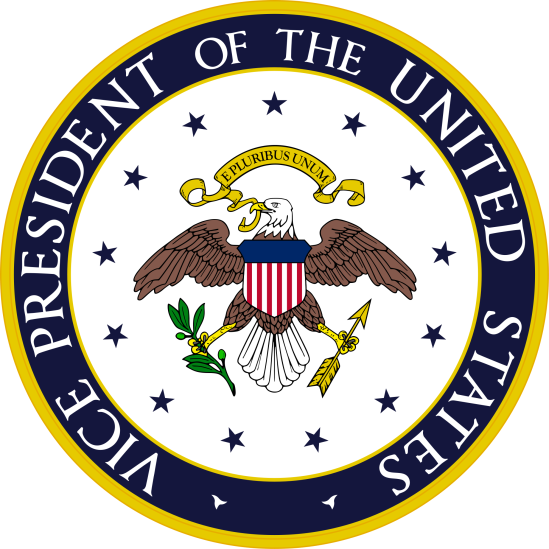
In the coming weeks, we have the coming national conventions for the Republican and Democratic nominees. However, before these can get off the ground, we have the veepstakes where the presumptive nominee has to choose a running mate for the ticket. Now selecting the VP has been a long tradition in American politics and history. But what does a vice president do, exactly? Well, as far the presidential campaign goes, a vice presidential candidate is supposed to balance the ticket and make the presidential candidate look good. As for the vice president, well, their job is to make the president look good, do a lot of ceremonial stuff, and be prepared to take over whenever the president can’t perform their duties. But it depends. If the president is sick or injured and is still kicking, then the VP might assume the president’s duties in an acting capacity. But if the president dies or gets assassinated, then the VP assumes the job. This has happened 8 times, starting with President John Tyler assuming office after William Henry Harrison contracted pneumonia and died after 30 days. Since Harrison was the first president to die in office, this was much uncertainty regarding succession. But Tyler cleared this up by resolving Harrison’s death made him president and had himself sworn in. Or the VP can ascend the presidency if the president gets into some shady shenanigans that either results in their removal or resignation as in the case with Gerald Ford succeeding Richard Nixon. VPs are also said to preside over impeachment trials of federal judges and preside as President of the Senate. Other than that, the VP role can vary depending on the guy who’s in office as well as his relationship with the president. However, don’t assume that the vice presidency is a useless position because political campaigns as well as the fact 9 guys assumed the presidency from there show it’s not. Nevertheless, while our nation has had some good veeps, but a lot of vice presidents have held office and achieved little of consequence. Then there are ones who deserve special mention but not because they’re good or a nonentity. Mostly because they’re noteworthy for being really terrible veeps such as corrupt, backstabbing, useless, just plain stupid or something else. So here is a list of vice presidents that no presumptive nominee wants on their ticket.
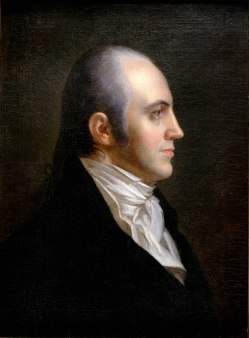
Unlike the other VPs on this list, at least Aaron Burr gets to be depicted in a hit Broadway musical. Unfortunately, for him, it’s called Hamilton and it’s about the guy he shot in a duel.
- Aaron Burr
Served Under: Thomas Jefferson (1801-1805)
Why He Seemed Good at the Time: Actually while he was intended to be Jefferson’s vice president, Jefferson didn’t have much say in the actual selection. Nevertheless, this brilliant guy graduated from Princeton at 16, served as a Continental Army officer in the American Revolution (rising to the rank Lieutenant Colonel), as well as had a successful career as a lawyer and politician (he was US Senator from New York). Had a great relationship with his daughter Theodosia (and was a better father to his known illegitimate children, too, unlike Jefferson. He also supported women’s rights and opposed slavery). Not to mention, being from the north provided a great balance with Jefferson’s southern disposition.
Why He Wasn’t: He’s one of the best known US vice presidents and it’s mostly for the wrong reasons. Aside from being relentlessly horny (his second wife divorced him when he was 80 on grounds of adultery, kept detailed records on his encounters with prostitutes, fathered at least two illegitimate children, and was considered a notorious womanizer), he had a knack for making powerful enemies as well as a reputation for being a political opportunist with an unbridled ambition. Though he ran as vice president on Thomas Jefferson’s Democratic-Republican ticket, most voters tended chose both men without indicating the intended office. When he and Jefferson were tied in the election of 1800, Burr dragged out the uncertainty to manipulate it to his will which resulted in political instability and a potential constitutional crisis (which would later be corrected by the 12th Amendment establishing a separate selection process for President and Vice President). Luckily, Alexander Hamilton sorted the matter out by rallying his fellow Federalists in Congress to side with Jefferson who ended up winning the presidency, mainly because he hated Burr more. Though it did take 36 ballots. Nevertheless, since Jefferson was understandably pissed at Burr for not doing anything to stop efforts to usurp the presidency, there was understandable tension. And it was enough for Jefferson to drop Burr from the ticket in 1804. After losing the New York gubernatorial election to a dark horse candidate by one of the largest margins in that state’s history, he would be forever known in American history for challenging and killing Alexander Hamilton in a duel in New Jersey. Though indicted, he was never tried and all charges were eventually dropped. But it effectively ended his political career. Yet, despite the incident which led his name live on in infamy, he was said to be unmoved by Hamilton’s death and expressed no regret for his role in the duel.
Later Life: After his vice presidency, he’d travel west seeking both new political and economic opportunities, which led to his arrest and indictment for treason in 1807. According to accusations, he schemed to create an independent country in the center of North America and or the present day American Southwest and parts of present-day Mexico. Some claim he wanted some or all the Louisiana Purchase form himself. Burr on the other hand, claimed he intended to take possession of a 40,000 acre Texas farm leased by the Spanish Crown. He was acquitted but his schemes left him with large debts and few influential friends. Spent time in Europe to regain his fortunes before returning to New York to resume his law practice. Daughter and son-in-law would disappear in 1812-1813 at sea and it’s unknown whether they were murdered by pirates or shipwrecked in a storm. Married his second wife, wealthy widow Eliza Jumel in 1833 who kicked him out after 4 months when he tried to make off with her fortune. Suffered a stroke in 1834 and died two years later in a Staten Island boardinghouse at 80.
Trivia: Grandson of the famed Puritan fire and brimstone preacher Jonathan Edwards, best known for his sermon “Sinners in the Hands of an Angry God.” His father was also a minister and even studied theology at the time (as an attempt to join the family business). But he changed career paths when he realized that a church career wasn’t for him. Was a college classmate to James Madison and introduced him to his future wife Dolley. Befriended philosopher Jeremy Bentham while he was trying to regain his fortunes in Europe. Son John Pierre Burr was an active member of Philadelphia’s Underground Railroad, served as an agent for the abolitionist newspaper The Liberator, worked in the National Black Convention movement, and served as Chairman of the American Moral Reform Society. Grandson Frank J. Webb wrote the second African American novel The Garies and Their Friends which was published in 1857. His complex character and political self-interest perhaps made him the most controversial American Founding Fathers to date.
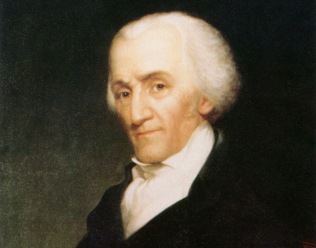
Sure he became infamous due to his state’s redistricting map that he’ll always be known for the term “gerrymandering.” But he wasn’t Madison’s first choice. So he kind of had to take what he can get.
- Elbridge Gerry
Served Under: James Madison (1813-1814)
Why He Seemed Good at the Time: For one, he had a long political career from the American Revolutionary period and it didn’t hurt he resided in Massachusetts. He vocally opposed British colonial policy in the 1760s and was active in the early stages of organizing resistance in the American Revolution. Signed the Declaration of Independence and the Articles of Confederation as well attended the Constitutional Convention in 1787 (but refused to sign it since it lacked a Bill of Rights). However, he would be actively involved with drafting and passing the Bill of Rights as an inaugural member of the US Congress. Was friends with both Federalists and Democratic-Republicans. Also, since Madison was a Southerner who was a teenager and college student at the time, Gerry seemed to complement him quite well. Not to mention, he posed less of a threat to James Monroe.
Why He Wasn’t: By 1812, the guy had a shady political reputation, especially in his home state. As Governor of Massachusetts, the legislature approved new state senate districts that led him becoming the namesake of “gerrymandering” a process in which electoral districts are drawn with the aim of aiding the party in power as well as caused political gridlock across the country ever since. Not to mention, also being remembered for refusing to sign the US Constitution, which we know was based on many of Madison’s ideas. Then there’s his role in the XYZ Affair which led to an undeclared naval Quasi-War with France. He would be accused of collaborating with the French (when he wasn’t and only stayed in France after Charles Cotesworth Pinckney and John Marshall had left because Talleyrand threatened war if he left). This resulted in the negative press damaging his reputation and being burned in effigy by protesters in front of his home. The “gerrymandering” incident, support of the War of 1812, and clashes with Federalist newspapers and printers during his term as governor damaged his reputation even further led to him to lose election in 1812. When he was selected for the vice presidency, he was having financial difficulties and asked Madison for a federal position. Luckily, Madison managed to win reelection quite easily and Gerry died a year and a half after being sworn in. However, this is not the guy you want as your running mate.
Later Life: He died during his term at 70 so there’s not much about him. Though his career has been difficult to characterize.
Trivia: Only Declaration of Independence signer buried in Washington D.C. Grandson became a US Congressman from Maine.
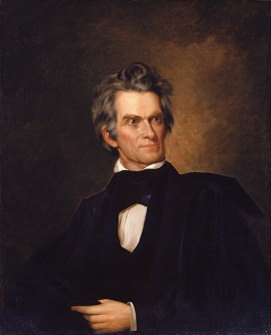
While John C. Calhoun was one of the most influential American politicians in history, his ideas about slavery and states’ rights would eventually end up tearing the nation apart as well as continue to sour American race relations and the political process as we speak. While Andrew Jackson’s presidential legacy isn’t a bed of roses, at least his decisive victory in the Battle of New Orleans in 1815 led Britain to recognize the Louisiana Purchase as US territory. Calhoun’s legacy by contrast, contains nothing worth commemorating a statue for. And he makes Andrew Jackson look good by comparison.
- John C. Calhoun
Served Under: John Quincy Adams and Andrew Jackson (1825-1832)
Why He Seemed Good at the Time: When it came to the divisive and very ugly elections of 1824 and 1828, having him as vice president was the only thing everyone could agree upon. Not to mention, he was one of the best known politicians of his day as well as seen as a voice for the antebellum South.
Why He Wasn’t: While Calhoun was certainly one of the most influential politicians in American history, he leaves one of the worst political legacies which has fucked up this country ever since. And it doesn’t help that his ideas have had enormous influence on Southern secessionist leaders as well as other politicians. While it wasn’t unusual for many American politicians to express racist views and own slaves, Calhoun was also a staunch defender of slavery which he viewed as a positive good as well as based his claims on paternalism and white supremacy. Chief Supreme Court Justice Roger B. Taney would base his infamous Dredd Scott decision on Calhoun’s ideas, ruling that that the federal government can’t prohibit slavery and that blacks have rights no white man is bound to respect. As for having him as vice president, well, let’s just say if there was one thing John Quincy Adams and Andrew Jackson can agree on it’s that Calhoun was a complete prick. Calhoun didn’t see eye to eye with Adams on most things and worked to undermine him. So in 1828, he decided to run with Andrew Jackson thinking things would be different. After all, while Adams hated slavery, Jackson owned slaves on his Tennessee plantation. He was wrong. Mostly because Calhoun championed nullification which states that if states don’t like a federal law, they could just ignore it (laying groundwork for secession, the American Civil War, and 600,000 dead Americans). Jackson disagreed with this policy completely. The two men becoming estranged and Calhoun’s resignation, but not after the Peggy Eaton affair resulted in most of Jackson’s cabinet being fired. Jackson had also replaced him in the meantime with anti-slavery Northern diplomat Martin Van Buren with whom he was on much better terms. For the rest of his life Jackson would express regret over not executing Calhoun as a traitor, making backroom conflicts between JFK and LBJ seem trivial. And let’s just say, it’s hard to disagree with him.
Later Life: Went to the US Senate where he’d advocate for slavery, states’ rights, and agricultural interests. He’d resign in 1843 so he could run for the Democratic presidential nomination in 1844. But he gained little support and decided to quit. That same year, he was appointed by John Tyler as Secretary of State where he presided over the Oregon Boundary Dispute and the Annexation of Texas (prompting the Mexican-American War). He returned to the Senate in 1845 and opposed the Mexican-American on account that it would distort the national character by undermining republicanism in favor of empire by bringing non-white persons (also known as “Mexicans”) into the country. Vigorously opposed the Wilmot Provisio which would’ve banned slavery in the new territories and it was defeated in the Senate each time it passed the House. Also rejected the Compromise of 1850 as well as affirmed the right of the South to leave the Union in response to Northern subjugation. Died of TB in 1850 at 68.
Trivia: Calhoun’s wife Floride prompted her own scandal by shunning the War Secretary’s wife Peggy Eaton, on account that she was fooling around with future Husband #2 while Husband #1 was still alive. Since Jackson and his wife Rachel were themselves subject to such political attacks when they married while her should’ve been ex-husband failed to finalize their divorce and Eaton being a close friend of his, Jackson was massively pissed. Called the Petticoat Affair, this resulted in almost all but one of Jackson’s Cabinet members being replaced. Body was hidden during the American Civil War over concerns on desecration. Let’s just say you’re bound to hear his name when controversy arises out of something named after him for good reason. His monument was vandalized in Charleston, South Carolina after the Charleston Shooting in 2015.
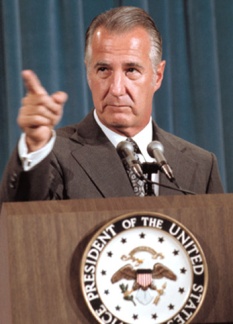
Caption: “Vice President Spiro Agnew points to a reporter at a news conference called to answer accusations of corruption and wrong-doing by him.” Agnew might’ve been a shitty human being. But that’s no excuse for being a shitty vice president. He’s on here because he was known for taking bribes and had to resign in disgrace.
- Spiro T. Agnew
Served Under: Richard M. Nixon (1969-1973)
Why He Seemed Good at the Time: Let’s see. He was a graduate of Johns Hopkins University as well as served as a US Army officer during WWJJ and Korean War. Was a prominent Greek American politician who served as Baltimore County Executive which was predominantly Democratic and Governor of Maryland. Also opposed segregation that 82,000 Democrats in that state voted for him. Not to mention, as governor, he worked with Democrats to pass tax and judicial reforms, anti-pollution laws, as well as civil rights actions like open housing and repealing anti-miscegenation. His immigrant background, moderate image, and success in a Democratic state made him an attractive running mate. And Nixon personally selected him over better known Republican names for these reasons. His career is one of the fastest political rises in American history.
Why He Wasn’t: Regardless on what you think about Gerald Ford as president, you should at least praise the Lord and rejoice that Ford just happened to be vice president when Nixon resigned. Seriously, Gerry Ford may have his faults and critics, but at least he wasn’t anything like this guy who, if he spent another 10 months in office would’ve became president instead. And let’s just say, it would’ve been very bad for the nation. Sure we don’t expect much in our vice presidents. Yes, the public was willing to overlook his habit of using terms like “fat Jap” and other denigrations to minorities. And yes, the public tended to be fine with Agnew being Nixon’s attack dog relishing in uttering phrases like “nattering nabobs of negativism” to define the White House press corps. Yet, even other VPs do such mudslinging so that’s kind of expected. However, we do kind of wish that they not take any bribes or at least pursue them openly. Unfortunately, this was too difficult for Agnew. In 1973, he was investigated by Maryland’s US Attorney Office on charges amounting to extortion, tax fraud, bribery, and conspiracy. He was charged with having accepted bribes amounting to more $147,500 while Baltimore County Executive, Governor of Maryland, and Vice President. That October, Agnew pleaded no contest to a single charge that he failed to report $29,500 of income received in 1967, on condition that he resign as VP in disgrace to avoid prison time. He was fined $10,000 as well as received 3 years probation, and disbarment. Historians widely consider him among the worst VPs in American history.
Later Life: Agnew would remain unrepentant post-resignation, insisting the money was actually campaign contributions and unsuccessfully attempted to write off the $268,462 fine on his taxes in 1983. Always maintained that the tax evasion and bribery charges were attempts by Nixon to divert attention from the growing Watergate scandal (reality, they were not). He and Nixon would never speak to each other again, though Agnew attended the latter’s funeral at his daughters’ invitation. After leaving politics, he became an international trade executive with homes in Rancho Mirage, California, as well as in Arnold and Bowie, Maryland. Briefly reentered the public spotlight calling for the US to withdraw support from Israel on its allegedly bad treatment of Christians. In 1980, he published a memoir implying that Nixon and Chief of Staff Alexander Haig had planned to assassinate him if he refused to resign. Died of leukemia in 1996 at 77.
Trivia: Wrote a novel called The Canfield Delusion about a Vice President who was “destroyed by his own ambition.” Maryland state portrait was taken down between 1979-1995.
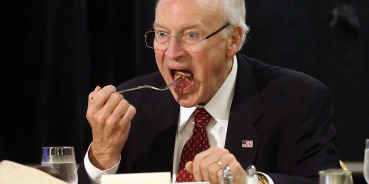
Dick Cheney may be one of the most qualified and powerful vice presidents to date. However, as a behind the scenes man, Cheney was seen as either the architect or shadowy puppetmaster behind the Bush Administration’s most controversial policies. He has certainly not admitted being wrong on any of them after leaving office, even defending them.
- Dick Cheney
Served Under: George W. Bush (2001-2009)
Why He Seemed Good at the Time: Cheney was a seasoned Republican politician and businessman who rose from congressional intern to White House Chief of Staff during the Nixon and Ford administrations. Was Wyoming US Representative from 1979-1989 and served as Defense Secretary under George H.W. Bush. Was CEO of Halliburton during the Clinton Administration where he left with a $20 million retirement package. Also, it helps that he was the head of Dubya’s own vice-presidential search committee. Then again, he did have a very impressive political resume. So he wasn’t quite wrong.
Why He Wasn’t: During his political career, Cheney was known to vote against Head Start and a resolution calling on South Africa to release Nelson Mandela (and still stands by this one). While he trumpets his success in the private sector, his primary “accomplishment” with running Haliburton was purchasing a company that eventually had to pay out $4 billion in settlements related to asbestos lawsuits. However, as VP, he’d make up for it by advocating for 2 wars and doling out no-bid contracts. Play a major role behind the scenes during the Bush Administration, particularly in its response to 9/11, the War on Terror, and Iraq (based on erroneous WMD claims), as well as defended its record on anti-terrorism. Was often criticized for such policies as well as NSA wiretapping and so-called “enhanced interrogation techniques” better known as “torture.” Oh, and he cited executive privilege over refusing to disclose documents. As one of the most powerful vice presidents in US history, Cheney was often seen as a “shadow president” and creating a “fourth branch of government” all to himself. In 2005, his office was investigated over the CIA Leak Scandal which resulted in the resignation, perjury conviction, and commutation of his chief of staff I. Lewis “Scooter” Libby. Has been compared to Darth Vader, stirred controversy as commencement speaker at Brigham Young University in 2007, and has had calls from media and advocacy groups calling for his prosecution under various anti-torture and war crime statutes. Shot his friend Harry Whittington in the face during a quail hunt in 2006 by accident with alcohol certainly being involved. Term in office was highlighted as he exceeded the authority of his office, contributed to secrecy in government, engaged in political vendettas and taken the lead in advancing unwise policies on the environment, energy, foreign affairs, budgets and taxes. By the time he left office, he was almost universally loathed by the American people.
Later Life: Since leaving the vice presidency, he has been active in defending the Bush Administration’s legacy as well as vociferously criticized the current Obama Administration. Hosted a private fundraiser for Mitt Romney in 2012 that netted $4 million. Spoke positive about the Tea Party. Written two books with his daughter Liz.
Trivia: Wife Lynne Cheney was chair of the National Endowment for the Arts from 1986-1996 and is now a public speaker, author, and fellow at the American Enterprise Institute. She also wrote a lesbian romance novel.
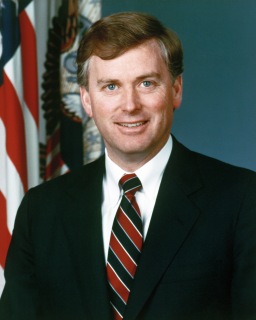
As the elder Bush’s VP, Dan Quayle would be a cause of continual embarrassment throughout the Bush campaign and presidency for being a total idiot. Another good Quayle quote: “The other day [the President] said, I know you’ve had some rough times, and I want to do something that will show the nation what faith that I have in you, in your maturity and sense of responsibility. Would you like a puppy?”
- Dan Quayle
Served Under: George H.W. Bush (1989-1992)
Why He Seemed Good at the Time: Well, he was a young fresh face to the Republican Party who served in variety of political offices in Indiana, defeated an 8 term veteran in his first US congressional race, and was elected to the US Senate at 33 as well as won reelection by large margins. He came from a wealthy family (that owned a newspaper in Indiana) and wasn’t a bad looking guy. Reagan once said the man had, “energy and enthusiasm.” Apparently, the elder Bush viewed him as a great insurance policy that would help save taxpayers money on his personal security detail. Also, having Quayle around would prevent Democrats from calling for his impeachment when it came to policies they really didn’t like.
Why He Wasn’t: Let’s just say the senior Bush’s choice in a running mate cause controversy from the very beginning. On questions regarding his military service in the National Guard to evade the draft during the Vietnam War, a golf trip with Paula Parkinson in Florida, and whether he had enough experience to be president, he seemed evasive in his answers. He would later be epically shut down by Lloyd Bentsen with “You’re no Jack Kennedy” in the vice presidential debate after he compared his own public service to that of John F. Kennedy. Yet, Bush and Quayle still won. During his vice presidency, Quayle would be widely ridiculed by the media and general public as well as be seen as an idiot and generally incompetent. Had a tendency to make public statements that were either self-contradictory, confused, or impossible. Examples: “The Holocaust was an obscene period in our nation’s history. … No, not our nation’s, but in World War II. I mean, we all lived in this century. I didn’t live in this century, but in this century’s history,” “I have made good judgments in the past. I have made good judgments in the future,” “Republicans understand the importance of bondage between a mother and child,” and during his address to the United Negro College Fund whose slogan is “A mind is a terrible thing to waste”: “You take the UNCF model that what a waste it is to lose one’s mind or not to have a mind is being very wasteful. How true that is.” When asked about sending humans to Mars, Quayle said, “Mars is essentially in the same orbit [as Earth]….Mars is somewhat the same distance from the Sun, which is very important. We have seen pictures where there are canals, we believe, and water. If there is water, that means there is oxygen. If oxygen, that means we can breathe.” Also, while we may not expect much from vice presidents, we do think that they should at least be able to spell the word “potato” right. But that didn’t stop him from trying to alter a 12-year-old boy’s already correct spelling to “potatoe.” And no, I don’t care if he was relying on an errant flashcard from that elementary school. If you’re an adult, you should’ve learned how to spell potato without having to rely on flash cards!
Later Life: Declined offers to run for Governor of Indiana and the presidency and moved to Arizona. Ran for the Republican Presidential nomination in 2000, ironically saying “we do not want another candidate who needs on-the-job training” on then front-runner George W. Bush. But he quickly withdrew and backed Bush after coming 8th in an Ames straw poll. Wrote 3 books. Joined Cerberus Capital Management in 1999 where he now serves as chairman of the company’s Global Investments division. Serves in various boards of directors for corporations like the Heckmann Corporation, Azora Bank, K2 Sports, Amtran, Inc., Central Newspapers, Inc., and BTC, Inc.
Trivia: Son was a one term congressman in Arizona but was defeated in a reelection primary due to redistricting. But he’s said to be equally moronic.
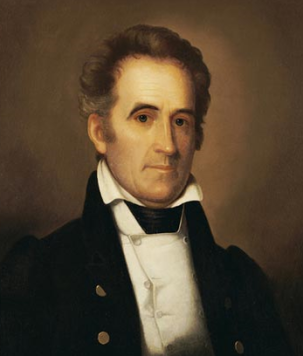
Richard Mentor Johnson’s status as a war hero for killing Tecumseh, his political career in Kentucky, and endorsement by Andrew Jackson himself should’ve made him a viable running mate for Martin Van Buren. Unfortunately, the guy was way too open about his personal life which made him a political nightmare in 1836 that the Democrats decided to run Van Buren with no VP at all.
- Richard Mentor Johnson
Served Under: Martin Van Buren (1837-1841)
Why He Seemed Good at the Time: Was reported to personally kill Tecumseh during the War of 1812 which he always used to exploit in his political career with glee that included time in the House and Senate. Was a campaigner against debt imprisonment and religious freedom (like abolishing the practice of “no mail on Sundays” rule). Also being from Kentucky helped balanced the ticket since Van Buren was from New York. Then there’s the slogan, “Rumpsey Dumpsey, Rumpsey Dumpsey, Colonel Johnson killed Tecumseh,” which is just great. Not to mention, he was endorsed by none other than Andrew Jackson himself for the vice presidency.
Why He Wasn’t: While he was said to dress like a farmhand and curse like a sailor, he was a antebellum political PR disaster. He publicly admitted to having a black common law wife named Julia Chinn and treating his slave daughters as legit. He also had two other slave mistresses, one of whom he tried to introduce to polite society. So what’s wrong with that? Morally nothing but politically everything, especially in the antebellum years where it earned him “the most vulgar man of all vulgar men.” Let’s just say when you’re running for a major political office and have cater to a bunch of racist slave owners as well as incredibly racist whites, it’s just completely stupid. This goes even if you’re the 19th century equivalent to the “I Killed Bin Laden Guy” like he was. Besides, this already cost him his career in the Senate. Though he had Jackson’s backing in the 1836 election (because Jackson didn’t give a shit about his personal life), the Democrats were far from united behind him and barely obtained the necessary two thirds vote at the 1835 DNC. Despite one state’s Democratic legislators refusing to vote for him, he won anyway. Unsurprisingly he proved to be a great liability in the 1836 general election. His public relationship with his slave cost a lot of Democratic votes in the South. He also failed to garner much support in the West despite his reputation as an Indian fighter and a war hero. As vice president, Johnson’s penchant for wielding his power for his own interests didn’t abate. After the Panic of 1837, he took a 9 month absence during which he returned to Kentucky to open a tavern and spa on his farm to offset his continued financial problems. Also proposed an expedition to the North Pole so Americans could drill into the center of the earth which was soundly defeated. Since he proved to be such a liability for the Democrats in 1836, they refused to renominate him for vice-president in 1840 and Van Buren campaigned without a running mate, while Jackson saw him as a “dead weight” and threw his support to James K. Polk. Undaunted Johnson continued to campaign to retain his office where he made rambling, incoherent speeches, raising his shirt to show war wounds from the Battle of the Thames, and leveling charges against William Henry Harrison that were so poorly received that they led to a riot in Cleveland.
Later Life: Returned to his Kentucky farm to oversee his tavern where he served in the state legislator and was a pallbearer for Daniel Boone at his reinternment at Frankfort Cemetery. But he never gave up on a return to public office with an unsuccessful campaign for the US Senate against John C. Crittenden in 1842 and a presidential run in 1844. Ran for Kentucky governor as an independent in 1848 but later conceded. Suffered dementia and died of a stroke at 70.
Trivia: Known for wearing a bright red vest and tie in his later life. Political prominence led to a family dynasty with 2 brothers and his nephew all being elected to the US Congress. Also had 2 other slave mistresses after his “wife” Julia Chinn died. One tried to run off with an Indian but he sold her while the other was her sister.
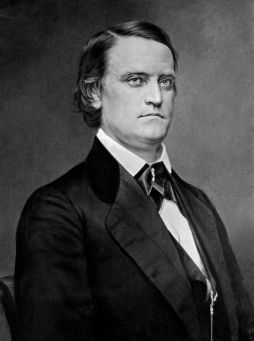
As James Buchanan’s vice president, John C. Breckinridge was a rising political star and the youngest VP ever at 36. However, his views on slavery and secession alienated Buchanan and his friend Stephen Douglas as well as tore apart his party. He later got expelled from the US Senate and became a general for the Confederacy.
- John Breckinridge
Served Under: James Buchanan (1857-1861)
Why He Seemed Good at the Time: Well, he was only 36 at the time, making him the youngest VP in US history as well as came from a prominent Kentucky family. Was a veteran of the Mexican American War. Was a states’ rights proponent who was against the legal interference with slavery which balanced the ticket with Buchanan. And let’s just say, things in the US were getting really bad by this time. Helped that he actively campaigned for Buchanan, too.
Why He Wasn’t: Well, let’s just say Buchanan resented the fact that he supported Franklin Pierce and Stephen Douglas (though to be fair Douglas was his friend but their relationship wouldn’t last). His pro-slavery views frequently led him to clash with Buchanan and Douglas, especially over the matter with Kansas that would soon be bleeding. When elected to the Kentucky legislature during his term, he endorsed the Dredd Scott decision and cautioned that John Brown’s raid on Harper’s Ferry was evidence on either negro equality or violence. In 1860, he accepted the nomination for president from protesting Democratic delegates who didn’t like Douglas. Another group of protesting delegates formed the Constitution Union Party and nominated John Bell. Believed in the right of secession and was accused of favoring Union breakup. Though he denied it, they were right. Still, while Breckinridge won 18.1% of the popular vote and placed second in the Electoral College, such disunion in the Democratic Party would result in Abraham Lincoln swept most of the northern states and won the presidency with 180 electoral votes. After losing to Lincoln, he announced his support for slavery and secession.
Later Life: His support for slavery and secession in his return to the Senate made his term a very short one. Since 7 states had already left the Union by this time, he was almost alone in his defense. He would later be indicted for treason after enlisting in the Confederate Army as well as be declared traitor and expelled by the US Senate. He would flee behind Confederate lines where he was commissioned as a Brigadier general. Was promoted to major general after the Battle of Shiloh as well as saw action at Stone River, Missionary Ridge, and the Shenandoah Valley. In 1865, he was appointed to Confederate Secretary of War and urged Jefferson Davis to surrender at the fall of Richmond. After the war, he fled to Cuba, Britain, and Canada as well as toured Europe for 2 years. All to escape treason charges before he could return after granted amnesty. Back in Kentucky, he resumed his law practice, served as counsel for the Cincinnati Southern Railway, and resisted calls to return to politics. Suffered from a variety of health problems in his later years. Died in 1875 at 54.
Trivia: Publicly denounced the Klu Klux Klan in 1870 as well as supported passage of a state statute legalizing black testimony against whites in court. Was played by Jason Isaacs in the 2014 film Field of Lost Shoes.
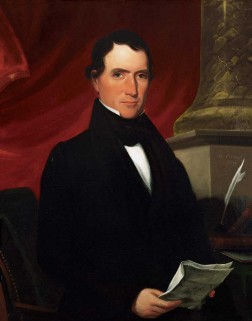
William Rufus King was a moderate Unionist Democrat and a Southerner who made a great running mate for Franklin Pierce. However, he took the oath of office in Cuba and was dead after 45 days.
- William Rufus King
Served Under: Franklin Pierce (1853)
Why He Seemed Good at the Time: He was a longtime politician and diplomat. As a Democrat, he was considered a Unionist as well as a moderate on issues pertaining to sectionalism, slavery, and westward expansion, all of which contributed to the American Civil War. He helped draft the Compromise of 1850.
Why He Wasn’t: Uh, he wasn’t in the best shape at the time. Because he took the VP oath of office on foreign soil in Havana, Cuba. Died 45 days into his term. Also, prior to the vice presidency, supported a gag rule in the Senate on antislavery petitions, opposed proposals to abolish slavery in Washington D.C., and was a member of one of Alabama’s largest slaveholding families with a vast cotton plantation to boot.
Later Life: He died 45 days after being sworn in from TB. So there’s nothing to say about him.
Trivia: Only vice president never to marry and resided much of his life with future president James Buchanan (who also never married, by complete coincidence. Not that there’s anything wrong with that but there has been speculation that they might’ve been more than just good friends).
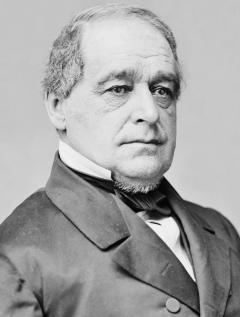
As a do nothing politician from Maine, Hannibal Hamlin was a safe choice as Abraham Lincoln’s VP in a very ugly election year. However, once he became vice president, he continued being useless that he spent most of his time in Maine anyway.
- Hannibal Hamlin
Served Under: Abraham Lincoln (1861-1865)
Why He Seemed Good at the Time: He was a senator, congressman, and governor from Maine mainly put on the ticket with Lincoln to provide a geographical balance in the 1860 election. That and the fact, his reputation as a do nothing politician who used his office to grant favors made him a safe choice as a running mate at a time when having a certain political agenda would lead to controversy. And since Lincoln was a highly controversial candidate for his stance against slavery expansion, having Hamlin as his running mate worked in his favor.
Why He Wasn’t: He’s a classic example of a vice president who exercised no power and no influence, even losing control of the patronage for his own state. It didn’t help that he and Lincoln never met until after the 1860 election. While Lincoln sometimes asked Hamlin for advice, his role was so limited that he often stayed in Maine, complaining about his insignificance. Also strongly supported Joseph Hooker’s appointment as commander for the Army of the Potomac that would end in failure at the Battle of Chancellorsville. He was so bored with his job that he joined the Maine Coast Guard as a cook. He was dropped from the ticket in 1864 for Andrew Johnson.
Later Life: Returned to the US Senate in 1869 where he served until 1880 due to ailing health. Served as Ambassador to Spain from 1881-1882. Died at 81 in 1891.
Trivia: Had two sons who became Civil War generals (one of them was a brevet). Son Cyrus called for enlistment of black troops and commanded a brigade of freedmen in the Mississippi River Campaign. Son Charles and daughter Sarah were present at Ford’s Theater during the Lincoln assassination. Great-granddaughter Sally was a child actress who made many spoken word for Victor Talking Machine Company in the early 20th century. Nephew was an Civil War surgeon who wrote books about Chancellorsville and Andersonville Prison.
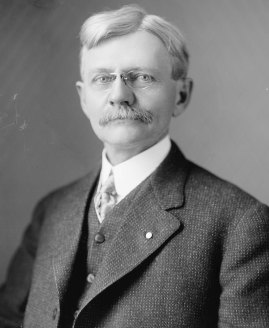
While Woodrow Wilson’s VP was known for his good sense of humor, he didn’t show much enthusiasm for the job and didn’t get on with his boss. However, what puts him on the list is that when Wilson suffered from a debilitating stroke, he refused to do his job.
- Thomas R. Marshall
Served Under: Woodrow Wilson (1913-1921)
Why He Seemed Good at the Time: He was a prominent lawyer in Indiana as well as a politician who rose to become its governor where he proposed controversial and progressive state constitution and pressed for other progressive reforms. It also helped that Indiana was a critical swing state in 1912. Was also great at giving speeches.
Why He Wasn’t: Wilson and Marshall had an ideological rift that led Wilson limit his influence in the administration and his brand of humor led Wilson to move his office away from the White House. Still, his best known moment was when Wilson was incapacitated from a stroke in October 1919 which prompted a leadership crisis. Because of personal dislike, Edith Wilson and his advisers sought to keep Marshall uninformed about to president’s condition to prevent him from easily assuming the presidency. Yet, while many people, including cabinet officials and Congressional leaders urged Marshall to become acting president, he refused to forcibly assume the presidency for fear of setting a precedent. Well, since there was no such thing as an acting president at the time, isn’t setting a precedent for one supposed to be his fucking job? I think so. Hell, the guy was already holding cabinet meetings while Wilson was in Europe. I’m sure setting a precedent as acting president would be something he could handle. But because Marshall didn’t do his job and was too chickenshit to stick up against Edith and Wilson’s advisers, there was no strong leadership in the executive branch. And the administration’s opponents defeated the ratification of the League of Nations treaty which effectively returned the US to an isolationist foreign policy.
Later Life: Tried to run for president in 1920 but only the Indiana Democrats supported him. Opened an Indianapolis law practice, wrote several legal books and a memoir, as well as continued to travel and speak publicly. Died of a heart attack while on a trip in 1925 at 71.
Trivia: Was known for his wit and sense of humor who said, “What this country really needs is a good five-cent cigar.” Only VP to be a target of an assassination attempt.
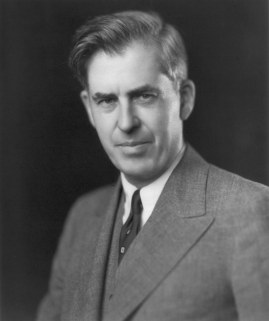
As FDR’s Secretary of Agriculture, Henry Wallace was almost second to none when it came to helping farmers and feeding the hungry during the Great Depression. However, as vice president, his left-wing views, crazy religious beliefs, and idiotic perception of the Soviet Union made him a source of controversy. It’s no wonder that the Democrats had FDR dump him for Harry S. Truman and the nation is better for it.
- Henry Wallace
Served Under: Franklin Delano Roosevelt (1941-1945)
Why He Seemed Good at the Time: Unlike John Nance Garner, he was a strong supporter of New Deal liberalism, rapid desegregation, and softer policies toward the Soviet Union. Also, had a successful career in agriculture that FDR appointed him Secretary of Agriculture when he was still a Republican (to be fair, the Roosevelts knew him a long way back). And while controversial, he was said to be really good at that job. Arthur M. Schlesinger wrote of him: “In 1933, a quarter of the American people still lived on farms, and agricultural policy was a matter of high political and economic significance. Farmers had been devastated by depression. H.A.’s ambition was to restore the farmers’ position in the national economy. He sought to give them the same opportunity to improve income by controlling output that business corporations already possessed. In time he widened his concern beyond commercial farming to subsistence farming and rural poverty. For the urban poor, he provided food stamps and school lunches. He instituted programs for land-use planning, soil conservation, and erosion control. And always he promoted research to combat plant and animal diseases, to locate drought-resistant crops and to develop hybrid seeds in order to increase productivity.”
Why He Wasn’t: Even as Secretary of Agriculture, Wallace was very controversial for his left wing views, bizarre religious beliefs (such as dabbling in mysticism and fad diets), and friendship with a Russian man said to cause a diplomatic upset while on an expedition in Asia. This guy tended to march his own unique political funky drummer. FDR’s tapping him as VP caused considerable controversy among the conservative Southern Democrats, many of whom mistrusted him, revolted during the Democratic National Convention that FDR threatened to decline the nomination while Eleanor delivered a conciliatory speech. As vice president, his tremendous naiveté about the world would prevent him from seeing the Soviet Union as a particular threat (as the tens of millions Stalin killed begged to differ). This is mostly because he saw a fully sanitized version of the Siberian slave labor camps in which the Soviets claimed the work as being done by, “volunteers.” Wallace took it hook, line, and sinker (idiot). May have had a Messiah-Complex. But his public feuds with officials caused significant controversy in the midst of WWII. During the 1944 election, the Democrats got fed up with Wallace and dropped him from the ticket in favor of Harry Truman (winning 90% of the vote) who became president had FDR died after 82 days. Had he been VP at the time, the Wallace administration would’ve been a very trippy administration. Sure Truman has received a lot of criticism from both left and right over the years, but even his staunches foes have to concede that the Berlin Airlift was a humiliating defeat for the Eastern Block. Not to mention, despite not having a college education and being unprepared for the presidency since FDR largely ignored him, Truman proved to be a way better president than this guy could’ve been.
Later Life: Served as Secretary of Commerce during FDR’s last month in office and into the Truman administration where he continued to attract controversy on his comments pertaining to the Soviet Union. This led Truman to fire him in 1946. After that, he became editor of The New Republic which he used as a platform to oppose Truman’s foreign policies and ran for president in 1948 as a Progressive Party candidate, advocating universal healthcare, desegregation and end to black disenfranchisement, and an end to the Cold War where he won 2.4% of the popular vote. Retired to New York to focus on farming. Supported the Korean War and later apologized for his former stance on the Soviet Union. Died of amyotrophic lateral sclerosis in 1965 at 77.
Trivia: George Washington Carver resided with his family as a student and later teacher at Iowa State. Wallace would accompany Carver on his nature walks. Work on plants helped introduce the concept of hybrid vigor as well as experimented with breeding high-yielding hybrid corn. Introduced econometrics to the field of agriculture. Founded the Hi-Bred Corn Company.
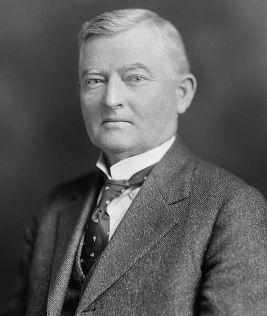
Before Henry Wallace was VP, FDR had conservative Texas Democrat John Nance Garner. Now first term Garner was great. But second term Garner, not so much. Hell, he even tried to run against FDR in 1940.
- John Nance Garner
Served Under: Franklin Delano Roosevelt (1933-1941)
Why He Seemed Good at the Time: He was a US congressman from Texas who rose to Speaker of the House. His conservative stance and Southern background made him a great balance on the FDR ticket in the 1932 election.
Why He Wasn’t: First term John Nance Garner was great since he helped sell FDR’s New Deal policy. Second term Garner, not so much. As a conservative Democrat from Texas, he opposed labor union sit down strikes and New Deal deficit spending, he sabotaged FDR’s policies (such as the court packing scheme). In 1940, he became the only sitting VP to challenge the sitting president for the party’s nomination. He lost. But by this time, a lot of Democrats didn’t find him appealing. Make way for proto-hippie Henry Wallace.
Later Life: Retired to his Uvalde, Texas home where he spent the last 26 years of his life as well as settled into a life of an elder statesman who was consulted by active Democratic politicians. Died in 1967 at 98 and is the longest lived VP to date.
Trivia: Called “Cactus Jack.” Was close to Harry S. Truman.
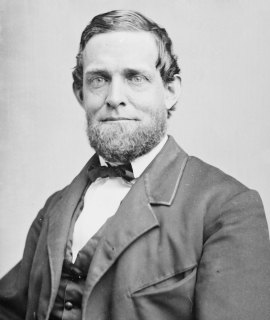
Close to the same age as Ulysses S. Grant, Schuyler Colfax seemed to be a great running mate due to his illustrious congressional career which led to him becoming House Speaker and being a champion against slavery and nativism. However, the guy was was corrupt as hell when it was revealed in a congressional investigation that he had taken bribes from the Union Pacific Railroad. Also, kind of a backstabbler. Oh, and he should’ve been played by a younger man in Lincoln because he was a year younger than Grant.
- Schuyler Colfax
Served Under: Ulysses S. Grant (1869-1873)
Why He Seemed Good at the Time: Well, like Grant, he was only in his mid 40s as well as had a political career that led him to become House Speaker, which made up for Grant’s lack of political expertise. Was known for his opposition to slavery, anti-nativism, and a founder of the Republican Party. Not to mention, he had a pretty awesome name.
Why He Wasn’t: Two things. First, thinking Grant would serve one term, he attempted to garner support for his 1872 Republican presidential bid by telling friends he wouldn’t seek a second VP term. By the way, this was part of his plan. But when Grant ran again, so did he but ended up being dropped from the ticket in favor of Henry Wilson. Second, in 1873, a Congressional investigation into the Credit Mobiler Scandal named him as one of the Congressmen who likely received payments of cash and discounted stock from the Union Pacific Railroad in exchange for favorable action during construction of the First Transcontinental Railroad. It was later revealed that he had taken $1,200 gift check for 20 shares of Credit Mobiler stock, which he denied after leaving office. In addition, Congress also revealed a more damning accusation that Colfax received a $4,000 gift in 1868 from a contractor who supplied envelopes to the federal government while he was chairman of the Post Office and Road Committee. Since these incidents took place while he was a Congressman and was scheduled to leave office the following month anyway, he wasn’t censured or forced to resign.
Later Life: Never ran again for office since his political career was ruined. Spent the rest of his life working as a business executive as well as a popular lecturer and speech maker. Died in Minnesota in 1885 while changing trains as he was en route to Iowa.
Trivia: Was friends with Horace Greely.
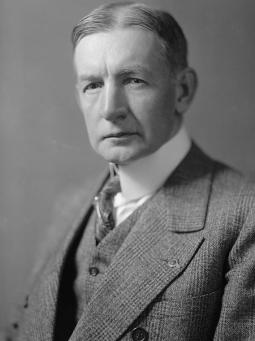
It’s no wonder that Calvin Coolidge selected Charles G. Dawes as his VP since he was a successful businessman, politician, and military general. However, the guy refused to attend cabinet meetings and napped through an appointee’s confirmation vote which cost the guy his job.
- Charles G. Dawes
Served Under: Calvin Coolidge (1925-1929)
Why He Seemed Good at the Time: He was a successful businessman and politician as well as served as a US Army officer during WWI rising to Brigadier general. Was also awarded a Nobel Peace Prize for his work in the Dawes Plan in 1925, was a program to enable Germany to restore and stabilize its economy after the war. Also, he was the first guy willing to take the job and was loyal to him and his campaign.
Why He Wasn’t: While there are presidents who didn’t get along with their veeps, Dawes didn’t even try. Soon after election, he sent Coolidge a letter saying that he would not attend cabinet meetings. The first time he addressed the Senate, he made a speech denouncing the way it conducted business, pissing off Coolidge. Later, he napped through a decisive vote which resulted in a Coolidge attorney general appointee losing his job. By 1929, he and Coolidge would despise each other and they’d have a feud that broke into open hostility. As for his Nobel Peace Prize win for his plan to restore German economic equilibrium, well, that worked spectacularly (it was ultimately an epic disaster since it didn’t help Germany’s economic woes nor prevent the rise of Adolf Hitler and Nazi Germany).
Later Life: Became the US ambassador to the UK and headed Herbert Hoover’s Reconstruction Finance Corporation. Returned to the banking business for nearly two decades and became chairman of the board of City National Bank and Trust Co. until his death in 1951 at 85.
Trivia: Was a self-taught pianist and composer who composed “Melody in Major” in 1912 which has been used to the lyrics “It’s All in the Game” that’s become a pop standard that’s been covered countless times. Was friends with General John Pershing. Descendant of William Dawes who accompanied Paul Revere.
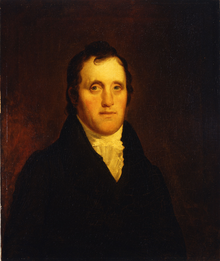
As governor of New York, he organized the state militia and invested his own money into it during the War of 1812. As James Monroe’s vice president, he was mostly drunk due to money problems and not being reimbursed for his efforts by the federal government.
- Daniel D. Tompkins
Served Under: James Monroe (1817-1825)
Why He Seemed Good at the Time: While a jurist by background, he was noted as one of the most enterprising governors during the War of 1812. Organized the state militia by often investing his own capital when the legislature wouldn’t approve the necessary funds. Yet, he failed to recover the loans despite massive litigation.
Why He Wasn’t: Well, the guy was already not in the best of health when he was sworn in. He fell off a horse in 1814. He also suffered money problems and slipped into alcoholism. Let’s just say he was often so drunk that he couldn’t perform simple parliamentary duties. Described by Martin Van Buren as “the most injured of men” as well as by another as a “degraded sot.” He made an especially poor presider when of the Senate while it debated the Missouri Compromise in 1820.
Later Life: His post-vice presidency was among the shortest in US history. Because he drank himself to death 3 months after leaving office at 50 in 1825.
Trivia: Has a neighborhood in Staten Island named after him.
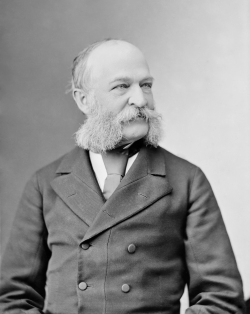
While Levi Morton had enormous walrus sideburns that were fashionable at the turn of the century, he was a shitty VP to Benjamin Harrison. His failure to ensure passage of a black voting rights bill was due to his belief that he should remain impartial. Harrison, on the other hand, had other ideas.
- Levi P. Morton
Served Under: Benjamin Harrison (1889-1893)
Why He Seemed Good at the Time: Was a distinguished politician who was once considered to be James A. Garfield’s running mate but declined. Served as an ambassador to France and was very popular there. Also placed the first rivet in the construction of the Statue of Liberty. Besides, I guess Harrison wanted to repeat the Garfield tradition of selecting the running mate with the most awesome side burns. Since it worked before.
Why He Wasn’t: Had little noteworthy to hang his enormous sideburns on. His one “accomplishment” was doing little to support passage on a bill to enforce black voting rights in the South against a Democratic filibuster in the Senate. Harrison blamed him for the bill’s failure because he believed his role was to be impartial. Was outfoxed by parliamentary procedure and replaced by Whitelaw Reed in the election of 1892 which Harrison lost. Because that’s what happens when you’re an utterly useless vice president.
Later Life: Served as Governor of New York and retired as a real estate investor. Died on his 96th birthday in 1920.
Trivia: Had vast landholdings. His summer home in Rhode Island is now owned by Salve Regina University.
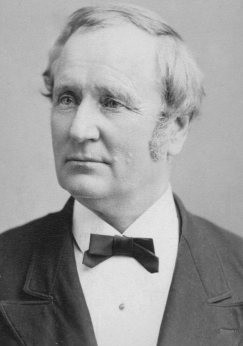
As a seasoned politician and popular Indiana governor known for defending the Democratic position during the American Civil War, Thomas A. Hendricks was a natural choice for Grover Cleveland’s running mate. Unfortunately, what made him very popular among the Democrats at the time was that he hate black people.
- Thomas A. Hendricks
Served Under: Grover Cleveland (1885)
Why He Seemed Good at the Time: Was a prominent politician in Indiana where he rose to become congressman, senator, and governor. Was also quite popular in the Democratic Party for defending its position during the American Civil War.
Why He Wasn’t: He was a fervent secessionist and pro-slavery supporter who opposed ratification of the 13th, 14th, and 15th, Amendments abolishing slavery as well as granting citizenship and suffrage to African Americans. Also supported segregation. Luckily he was in ill health at the time and died 8 months into his term at 66.
Later Life: He only lasted as VP for 8 months so there’s not much to write about in this section.
Trivia: There’s not anything interesting about him.


Some pretty bad VPs. We had some pretty bad presidents too. I guess we will survive!